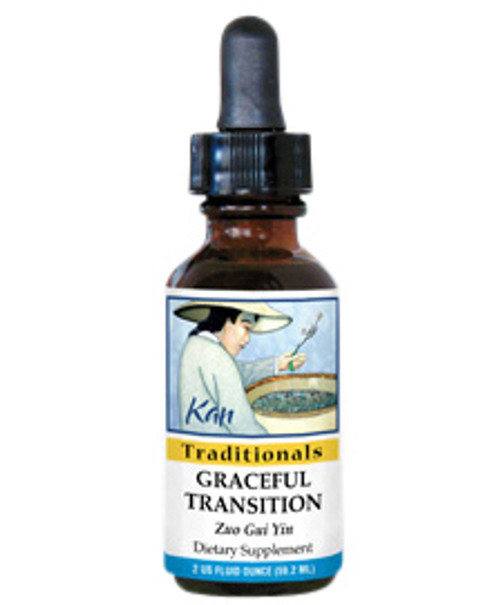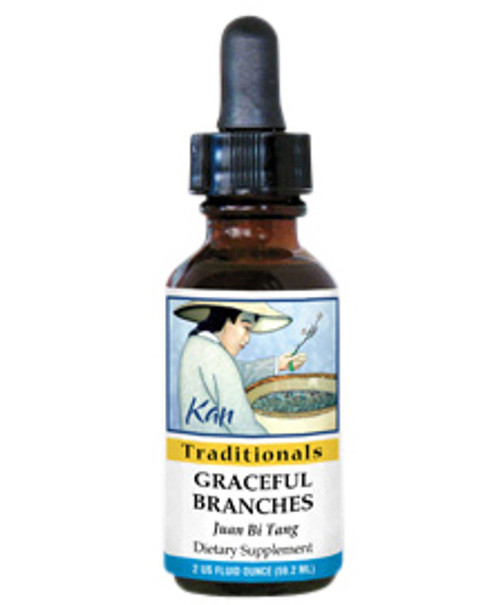
Product Description
Graceful Transition, 2 oz
| Unit Size | 2 |
| Potency | 7:1 |
| Contraindications | Use with caution in cases of Spleen and Stomach deficiency. Use with caution during pregnancy. |
| Chinese Symptomology | Kidney Yin deficiency, menopause |
| Western Symptomology | Hot flashes, night sweats; dry stools, mouth, eyes, and vagina; dizziness, tinnitus; sore lower back and legs, extreme fatigue; depression |
| Actions | Nourishes Kidney Yin, nourishes Essence, clears deficiency Heat, supports Kidney Yang |
| Pattern | Kidney Yin deficiency, deficient Heat |
| Tongue | May range from nearly normal color to red; shiny or peeled (depending upon the degree of Yin Deficiency) |
| Pulse | Thin, rapid; may be floating, or slightly wiry on the left |
| Chinese name | Zou Gui Yin |
| English name | Graceful Transition, 2 oz |
Description
Graceful Transition addresses peri-menopausal and menopausal symptoms for women with predominant Kidney Yin deficiency. In clinical practice, it is common to encounter Kidney Yin deficiency accompanied by slight to moderate Kidney Yang deficiency. Graceful Transition elegantly addresses this issue by deeply nourishing Kidney Yin and Essence, clearing Empty Heat, and also gently supporting Kidney Yang. While this formula was created to address the needs of peri-menopausal and menopausal women, it may be effectively used to treat men as well when there is a predominance of Kidney Yin deficiency, Empty Heat, and slight to moderate Kidney Yang deficiency. Graceful Transition strengthens the Root and the Spleen, the sources of Kidney and post-natal Essence respectively, and nourishes Liver Blood. (Kan Herb Company)
Ingredients
Shu di huang (Rehmannia root (prepared) ); Gou qi zi (Lycium fruit); Fu ling (Poria); Shan yao (Chinese yam rhizome); Shan zhu yu (Asiatic cornelian cherry); Di gu pi (Lycium bark); Dang gui shen (Dong quai root); Lu jiao jiao (Deer horn gelatin (soybean) ); Zhi gan cao (Chinese licorice root (honey fried) ); Mu dan pi (Tree peony root bark); Wu wei zi (Schisandra fruit); Chuan nui xi (Cyathula root)












